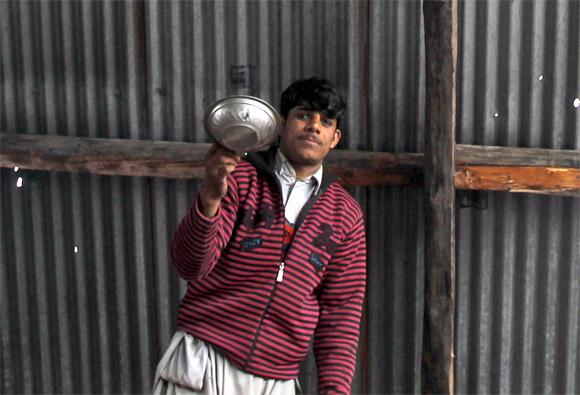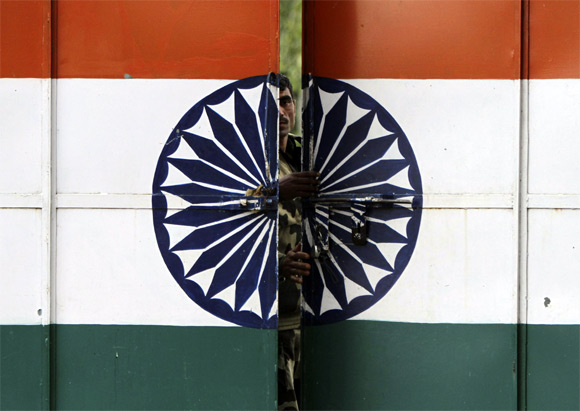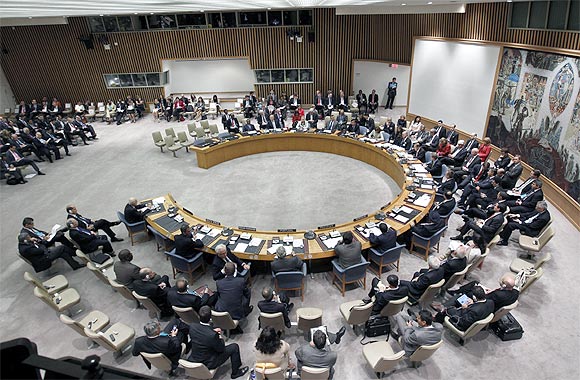 | « Back to article | Print this article |
Don't need UN force in Kashmir: India
India and Pakistan had a verbal spat at the United Nations on Monday over whether there is a need for the continued presence of the UN Military Observer Group in India and Pakistan to monitor the ceasefire line in Jammu and Kashmir which, India said, has been overtaken by the 1972 Simla Agreement between the two countries.
India felt that UNMOGIP's role has been superseded by the Simla Agreement while Pakistan opposed that line of argument.
During an open debate on UN Peacekeeping at the UN Security Council, Abbas Jilani, visiting foreign secretary of Pakistan, which is presiding over the council in January, talked about the importance of UN peacekeeping, which he said "has saved tens of millions of lives around the globe".
But Pakistan made an additional statement after the conclusion of the debate, raising objection to a point made by Permanent Representative Ambassador Hardeep Singh Puri in his address to the council on Monday evening.
Puri said that while New Delhi supports peacekeeping and has been one of the largest contributors to UN peacekeeping forces worldwide, it felt that scarce resources of the world body in terms of peacekeeping should be spent where it was needed the most.
Reportage: Suman Guha Mozumder in New York
Click on NEXT for more...
Don't need UN force in Kashmir: India
"A reference has been made to the UNMOGIP. Suffice it to point out that the UNMOGIP's role has been overtaken by the Simla Agreement of 1972 between India and Pakistan, signed by the heads of the two governments and ratified by their respective parliaments," he said.
"In times of austerity, we need to address the question whether the resources being spent on UNMOGIP would not be better utilised elsewhere," Puri said.
Taking its traditional line, Pakistan Ambassador to the UN Abdullah Hussain Haroon made an additional statement after Puri's remarks, saying that no bilateral agreement between India and Pakistan has overtaken or affected the role or legality of UNMOGIP.
"The UNMOGIP continues to monitor the ceasefire in accordance with Security Council resolution. Its mandate is therefore fully valid, relevant, and operative," he said.
After this, Counselor Manish Gupta took the floor and made an additional statement on behalf of India, saying that New Delhi is constrained to take the floor to put forward the factual position in response to the comments made by the Pakistani ambassador.
Click on NEXT for more...
Don't need UN force in Kashmir: India
"UNMOGIP's role was to supervise the ceasefire line which was established in Jammu and Kashmir as a result of the Karachi Agreement of 1949. That cease-fire line no longer exists and a new cease-fire line came into existence on December 17, 1971," he said.
"Following the Simla Agreement of 1972 between India and Pakistan, signed by the heads of the two governments and ratified by their respective parliaments, the two countries resolved to settle their differences by peaceful means through bilateral negotiations. The Agreement also stipulated that the Line of Control resulting from the ceasefire of December 17, 1971, shall be respected by both sides," he said.
"Subsequently, the Line of Control was delineated in Jammu and Kashmir in pursuance to that Agreement with approval of both the governments. Thus, UNMOGIP's role has been overtaken by these developments,' India said.
"Actually, it was no surprise that Pakistan took that stand today because it has been the traditional position of Islamabad, but what was interesting today was that Pakistan made an additional statement after the debate ended. Naturally, India had to give a reply in conformity with the factual position on the issue," sources said.
Click on NEXT for more...
TOP photo features of the week
Click on MORE to see another set of PHOTO features...



